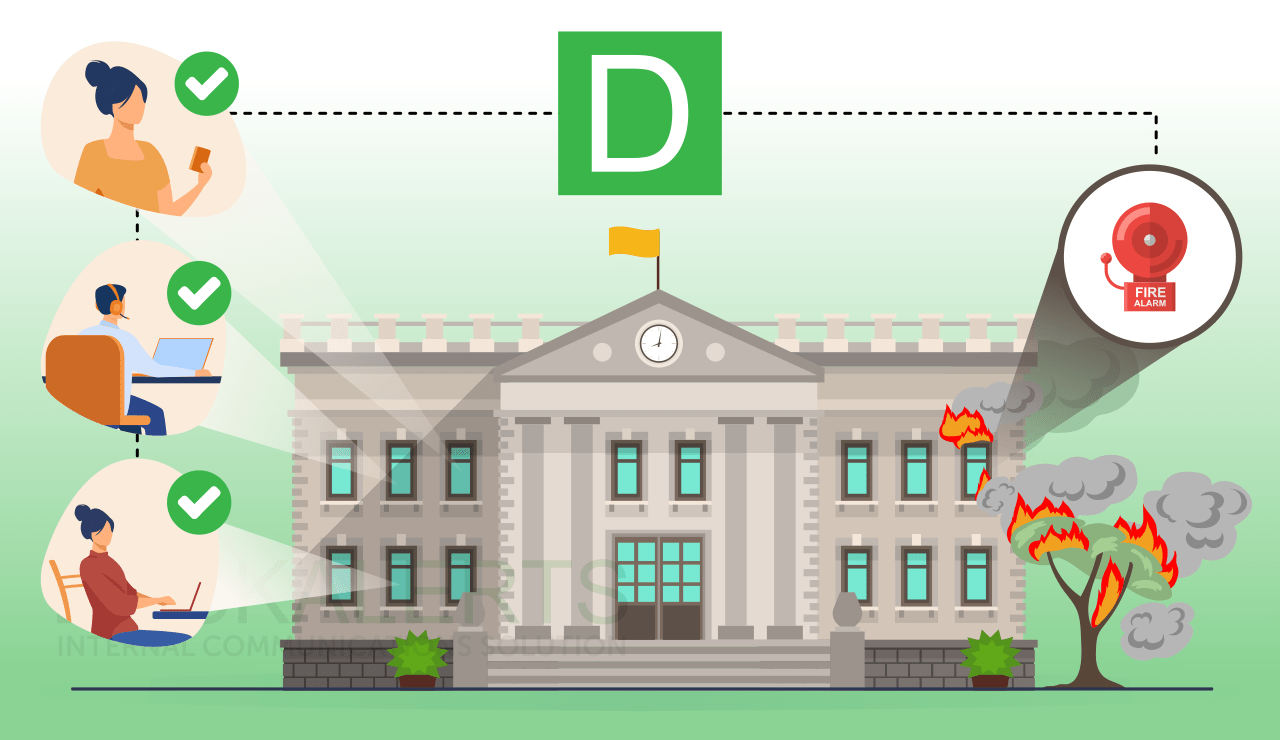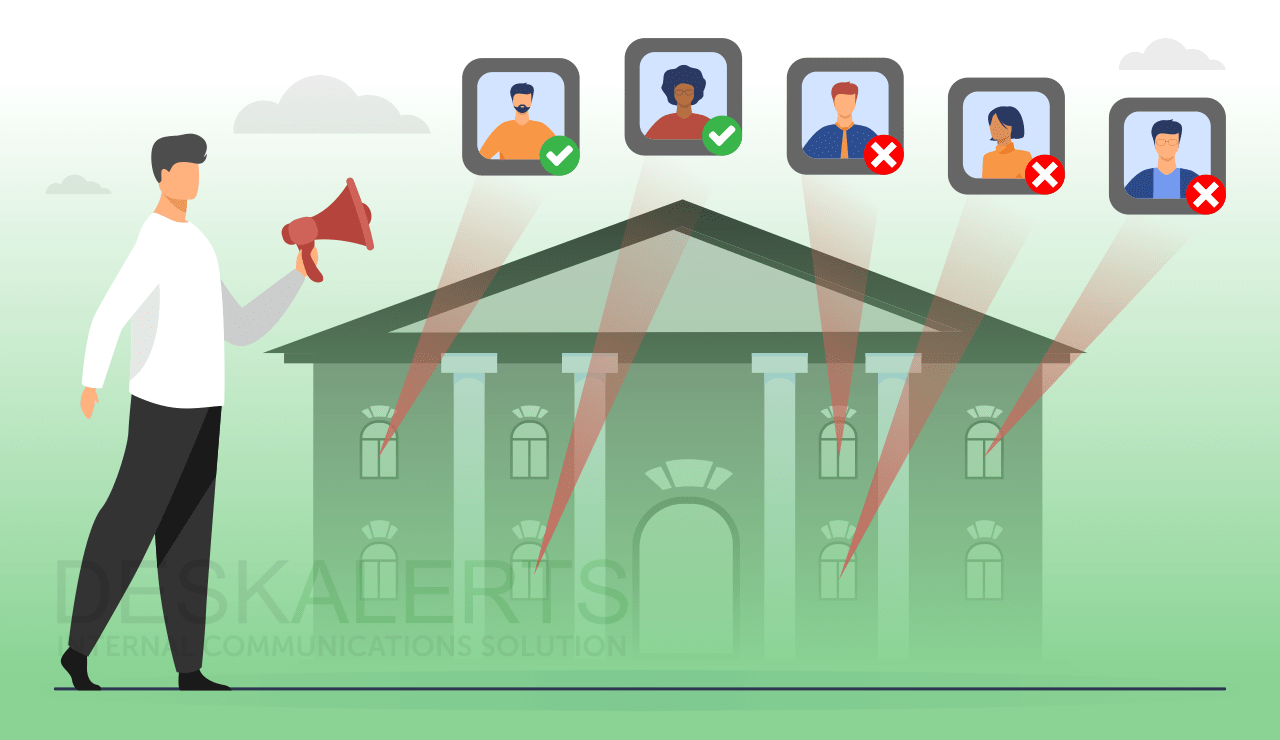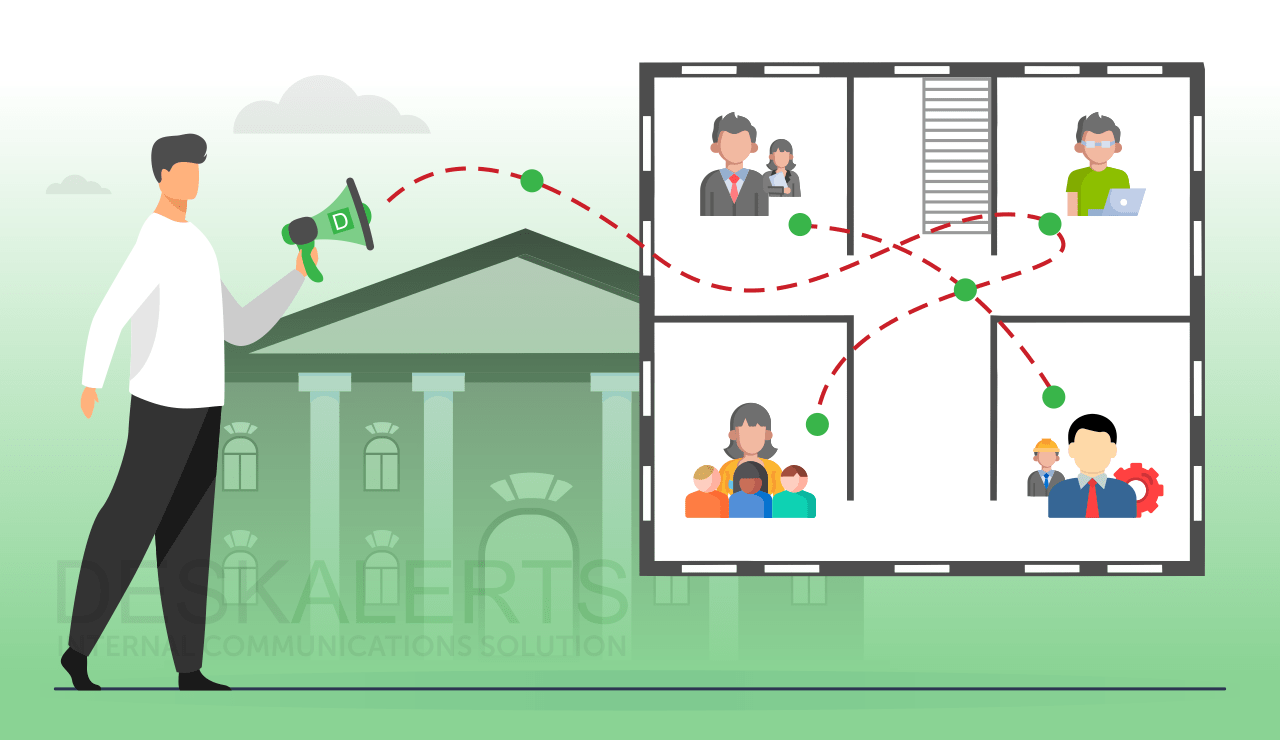 Government organizations need to be prepared to continue their operations even if they are mired in a crisis. Having an effective government business continuity plan in place will provide a roadmap for your organization to follow both during and after a critical event. Incorporating a government emergency alert system into these plans will be extremely beneficial should the worst-case scenario occur.
Government organizations need to be prepared to continue their operations even if they are mired in a crisis. Having an effective government business continuity plan in place will provide a roadmap for your organization to follow both during and after a critical event. Incorporating a government emergency alert system into these plans will be extremely beneficial should the worst-case scenario occur.
Table of contents
Why business continuity is important for government
The main risks to business continuity for government organizations
Steps to take to ensure successful business continuity in government
The DeskAlerts emergency alert system for government agencies and local governments
Why business continuity is important for government
Business continuity and disaster recovery is important for government organizations. Government organizations at all levels provide essential functions and services to the public.
A business continuity plan will help the organization to define and prioritize its critical operations which will help to determine resourcing and focus when there is an incident that needs to be recovered from. This also needs to be balanced with ensuring that employees and members of the community remain safe while the continuity of business operations occurs.
When organizations don’t have effective business continuity practices in place then they run the risk of making a disastrous situation even worse. Without clear protocols in place, the organization will not have a clear pathway to recovery.
And just because it hasn’t happened to your organization doesn’t mean it will stay that way. There have been many examples of business continuity failures in government in recent years. Some notable cases include:
- A cyber attack on the city of Atlanta, Georgia’s computer systems that cost the city government $17 million to resolve. The cyber attack prevented residents from paying online bills to the city, issuing warrants, processing inmates and the payment of court fees, among other things.
- The Californian Department of Motor Vehicles experienced a computer outage that lasted for several days, and resulted in drivers having the inability to renew licenses or vehicle registrations.
- A range of business continuity failures hampered the recovery efforts after Hurricane Katrina, including organizations being unable to communicate, failure to deploy appropriate resources to ensure community safety and widespread confusion.
- Numerous ransomware attacks that have crippled hospital systems and prevented them from being able to perform operations or access patient files. They have even been linked to cases of death and injury.
In many jurisdictions, government agencies are expected to have appropriate business continuity plans in place. Oversight authorities, such as the Australian National Audit Office in Australia, for example, require government entities to have business continuity plans in place as part of their risk planning and accountability obligations.
The main risks to business continuity for government organizations
There are many different risks that government organizations need to be aware of that could potentially prevent them from carrying out their work. This includes:
- Natural disasters like hurricanes, earthquakes, floods, forest fires
- Major IT failures
- Major systems outages such as internet, electricity, gas
- Cyber attacks such as hacking, ransomware, viruses
- Pandemics and other health disasters
- Terrorism
- Mass casualty accidents and incidents
- Civil unrest etc.
Steps to take to ensure successful business continuity in government
1. Have appropriate plans in place
Before: Be prepared in advance by developing plans that will help guide your organization to remain operational during and after a disaster. Assign roles and responsibilities.
During: Follow the plans and ensure employees follow instructions issued by those with identified business continuity roles as per the plan.
After: Review to determine how successful the plan was, what worked and what could be done better next time. Amend business continuity plans if necessary.
2. Test your plans
Before: Test your business continuity plans on a regular basis to determine how effective they are and to give your employees practice so they can be ready for the real thing.
During: When you are testing your plans you can monitor if they are being tested in accordance with the organization’s risk profile.
After: Evaluate the tests and make revisions to plans if necessary.
3. Secure your data
Before: Review the security of your data to determine if there are risks. You should consider moving away from on-site servers and data centers to Cloud based services.
During: Systems can be restored from your latest secure backup.
4. Don’t overlook the importance of communication
Before: Take time to develop appropriate business continuity communication strategies so that you can communicate with your employees and stakeholders.
During: Use templates prepared as part of your communication planning and follow your strategy to ensure timely communication that prevents confusion and misinformation.
After: Evaluate the success of your plan. Did communication work? Do you have any metrics or analytics that can help you determine this? Adapt your communications plans for the future if necessary.
5. Invest in an emergency alert system
Before: Purchase and install an emergency alert system for your organization that can be used to support business continuity.
During: Communicate with your employees by sending them government emergency alerts to ensure that they understand what the situation is and what is required of them in terms of business continuity.
After: You can continue to communicate with employees and get feedback about how they feel the situation went.
The DeskAlerts emergency alert system for government agencies and local governments
DeskAlerts is an internal communications software system that will enable you to deliver critical information to your employees during a crisis, helping to ensure your ongoing business operations.
The system is installed on any organizational device, including laptops, desktop computers, mobile phones and tablets. It can also display information on digital screens, effectively turning them into moving billboards. Communications are sent in a range of formats across multiple channels, including pop-up alerts, desktop tickers, corporate screensavers, lock screen alerts, surveys, polls and quizzes, SMS notifications, mobile app alerts and more.
DeskAlerts was designed to be intrusive and to cut through all the other digital “noise” in a modern workplace so that employees do not miss important information. This is a crucial factor for successful business continuity: people need the right information and they need it fast.
Benefits of using DeskAlerts for government emergency management include:
- Being able to notify your employees about any type of IT emergency, including cyber attacks.
- Being able to notify thousands of employees in less than a minute about a critical incident, for example sending messages to employees who could be caught up in a riot during times of civil unrest.
- It can be used as part of your emergency preparedness drills and other business continuity training exercises.
- It can be used to supplement other emergency communication systems you have in place such as a government emergency telecommunications service.
- Being compatible with any operating system, including the ability to send government alerts for iPhone and government alerts for Android
- Being able to send visual content, such as video, directly to employees so they can follow instructions.
- Being able to reach employees no matter where they are – working from the office or at home – to provide them with information about business continuity requirements. For example, if you require them to work remotely until further notice you can do so by sending government notifications on iphone.
- Get feedback from employees in real time about their safety by using the surveys module.
The system can be used outside of emergency or business continuity requirements for general internal communications purposes.
***
Unfavorable events can happen when you least expect them, but being prepared to guide your business operations through and beyond these events is a choice you can actively make. When planning for business continuity, get in touch with our team of experts to find out how DeskAlerts can help keep your operations functional during and after an adverse event.
Frequently Asked Questions
Why is business continuity so important for government organizations?
Government organizations are different from private companies. They are owned by the public and are often implementing the policies of elected officials. Their purpose is to carry out activities, functions and services for the public. When there is a disruption to operations it can affect a large segment of the community.
What is business continuity and why is it important?
Business continuity is a term used to describe an organization’s ability to carry out essential functions both during and after a disaster. It is important to ensuring organizational resilience, minimizing disruptions and saving time, money and the organization’s reputation.
Which role does the Federal Government play in emergency preparedness?
In the United States, the Federal Government has a key role to play in planning for emergencies and preparing the community to respond to them.
 Caroline Duncan
Caroline Duncan
 Government organizations need to be prepared to continue their operations even if they are mired in a crisis. Having an effective government business continuity plan in place will provide a roadmap for your organization to follow both during and after a critical event. Incorporating a government emergency alert system into these plans will be extremely beneficial should the worst-case scenario occur.
Government organizations need to be prepared to continue their operations even if they are mired in a crisis. Having an effective government business continuity plan in place will provide a roadmap for your organization to follow both during and after a critical event. Incorporating a government emergency alert system into these plans will be extremely beneficial should the worst-case scenario occur.





